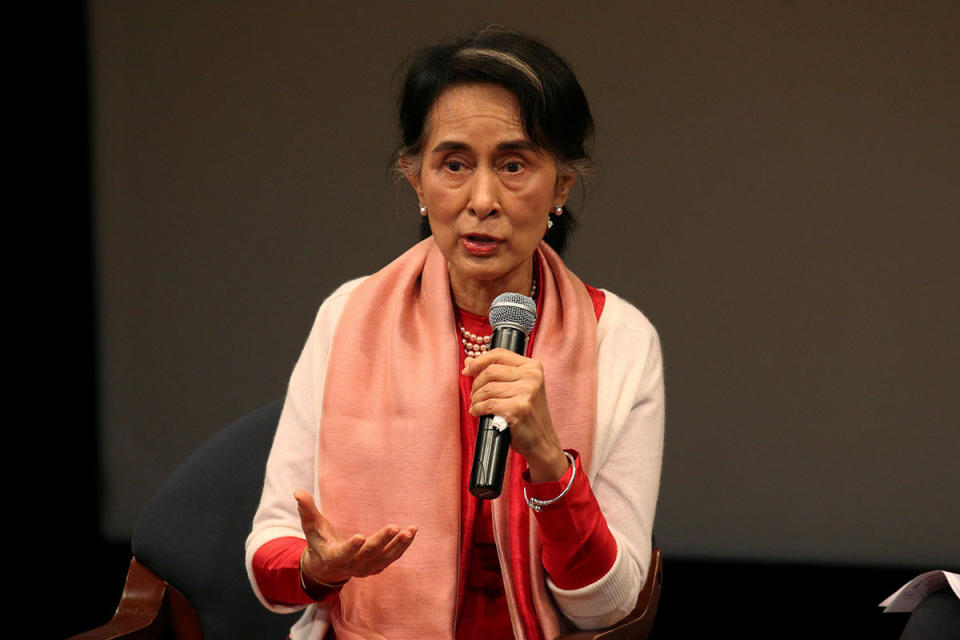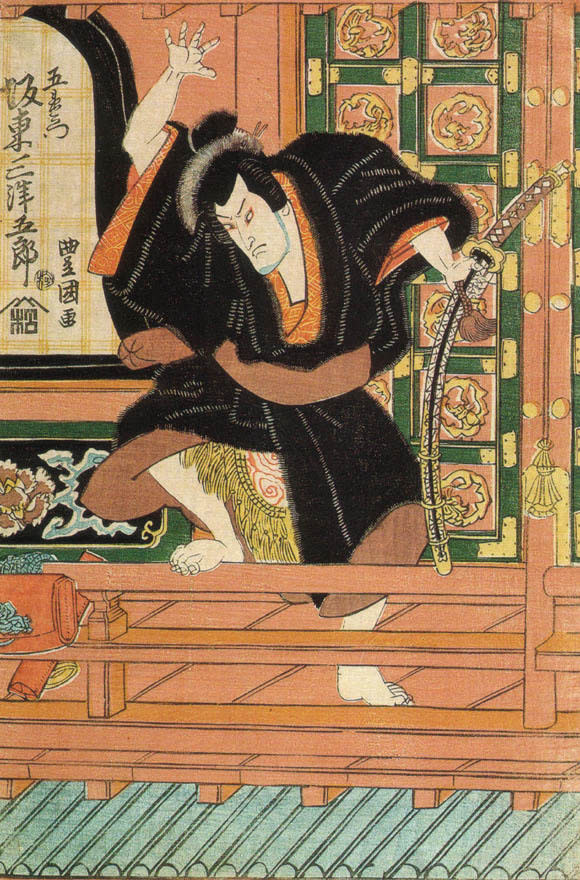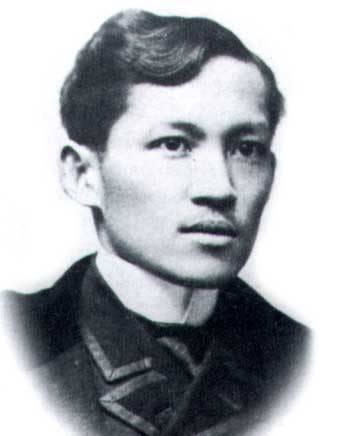7 heroes who fought for the people in Asia

“Magnificent 7″ brings together a dysfunctional group of seven companions on a journey through the wild West. Chris Pratt, Denzel Washington, and Asia’s very own Lee Byung-Hun, among others, band together to save the town of Rose Creek from greedy, vicious villain Bartholomew Bogue.
Did you know that this film is a remake of the original gunslinger classic from 1960, which in turn was also a Hollywood remake of the Japanese film, “Seven Samurai”?
This movie tells a tale of unlikely outlaws who come together to do magnificent things in the Old West, but we have had our fair share of heroes and heroines in Asia as well (law-abiding and otherwise). Here is a list of some of the most heroic people who have graced our fair lands, and have made many lives a lot better in their time.
Aung San Suu Kyi (Myanmar)

There are many things that define a hero, but perhaps the most crucial component is the element of self-sacrifice.
Myanmar opposition leader and pro-democracy advocate Aung San Suu Kyi is one such heroine who boldly embodies this trait, having sacrificed her freedom and family for the sake of her fellow countrymen.
Aung San Suu Kyi was placed under house arrest by the military junta in 1989, after she campaigned for the military leaders to hand over control of the country to a civilian government.
Her husband and two sons lived in the London, and she only saw them five times throughout the entire period of her detainment. The military offered her multiple chances to be released from her house arrest, but on condition that she never leave Myanmar and never return - Aung San Suu Kyi declined, of course, fearing that doing so would mean that she would leave her people behind.
She was freed only in 2010. Suu Kyi is highly regarded throughout the world as a peaceful freedom fighter, and has won multiple accolades, including a Nobel Peace Prize in 1991.
There was prize money along with the award as well - a whopping US$1.3 million, to be exact - and she used this money not for herself, but instead magnanimously used it to set up a health and education fund for the Burmese people.
The Nobel Prize Organization depicts Suu Kyi as “Burma’s modern symbol of freedom,” and rightly so - as she was the primary driving force behind Myanmar’s fight for democratic freedom from military rule.
Her opposition NLD party swept the polls in 2015, and Suu Kyi took over several official positions, including the role of State Counsellor, which was created for her by her allies in the government in 2016.
Ishikawa Goemon (Japan)

Photo: Wikipedia
There are differing accounts on Isikawa Goemon’s early life in the 16th century. Some say he was a runaway ninja who swore revenge on a wealthy clan after they killed his father.
Others say that he was a rogue ninja who arrived in Kyoto purely to rob the rich who resided there, and quickly climbed up the ranks to become the king of thieves.
Whichever the case, one aspect of this widely shared folk story stays the same: that Goemon was an outlaw hero who shared his loot with oppressed peasants.
This particular hero was the Robin Hood of feudal Japan, who, according to legend, literally stole from rich feudal lords and merchants to help the needy.
He is a widely known character in Japanese history (although his existence is disputed) but folk stories portray him as a respected, chivalrous man who used his skills to better the lives of the poor.
Unfortunately, Goemon was caught red-handed during a failed assassination attempt on warlord Toyotomi Hideyoshi.
He was sentenced to death (along with his young son) in a public execution in a rather strange manner - death by burning hot, boiling water.
Goemon’s larger-than-life story still lives on in contemporary Japanese puppet-theatre, plays, manga, anime, and video games.
Anne Eu (Malaysia)

Photo: Forbes
Eu Yan Sang was first established in Perak, Malaysia more than a century ago in 1879. Since then, it has become a respected household brand with more than 300 retail outlets throughout Asia and Australia.
The name Eu Yan Sang literally translates to ‘caring for mankind’ in Chinese, and that is exactly what it strives to do.
The company doles out herbal remedies and traditional Chinese medicine, but a large portion of its sales goes towards giving back towards society.
The company is helmed by Anne Eu, who took over the business after her husband, then chairman of Eu Yan Sang Malaysia, passed away in 2007.
Under her stewardship, the company has spearheaded several charitable causes for various groups across Malaysia.
Eu organised charity dinners for the Tunku Azizah Fertility Foundation (TAFF), which helps support childless couples who cannot afford fertility procedures. She has also helped to raise RM 1 million for cancer research in Malaysia, and funds for the Spastic Children’s Association and Federal Territory.
She is also actively involved with the Joseph William Yee Eu Foundation, which funds the education for children in rural parts of the country.
One of her latest endeavours is the Roti1Malaysia project, which collects unsold bread and pastries from bakeries and restaurants across Klang Valley, and redistributes them to the hungry in orphanages, elder care homes, and refugee centres.
For her humanitarian efforts, Eu was listed as one of Forbes’ Heroes of Philantrophy in 2016.
Jose Rizal (The Philippines)

Photo: Wikipedia
In the colonial era, much of Southeast Asia was ruled by Western conquerers.
The first nation to achieve complete independence during that time was the Philippines, and much of this was due to the work of Jose Rizal.
Born in 1861 to the wealthy Mercado family, Rizal spent his formative years picking up several artistic and linguistic skills fairly quickly.
As an adult, he mastered several fields of study (including medicine, sociology, and architecture to name a few), and could fluently speak 22 languages. He spent several years studying and travelling around Europe.
It was during that time that Rizal wrote several papers about political and humanitarian reforms that he felt the Spanish colonial system in the Philippines should undertake - namely, freedom of speech and equal rights for his Filipino countrymen.
It was also these ideas, however, that got him in trouble with the colonial government. Upon Rizal’s return to his homeland, he was arrested, jailed, and also exiled for the crime of spreading subversive ideas.
He never acted on his ideas, but the government had already labelled him as a dangerous rebel, and he was subsequently executed by gunfire in 1896.
His death only served to spur the Philippine Revolution even more, and the people finally defeated their colonial rulers two years later in 1898.
His ideas and reforms were later legislated, and formed the backbone of modern Philippine law.
Today, he is remembered as a national hero and founding father of the Philippines, widely regarded for his courage and peaceful resistance to colonial dominance.
King Bhumibol Adulyadej (Thailand)

Photo: Reuters
In June 1946, twenty-year-old Thai King Ananda was unexpectedly shot to death on palace grounds. The circumstances of his death remain unclear until today.
King Ananda’s sudden death paved the way for his brother - then 18-year-old, bespectacled Bhumibol Adulyadej - to ascend to the throne.
King Bhumibol began his reign at a time when monarchies across Southeast Asia were being torn from power by colonial forces.
Despite the odds being stacked against him, however, he steadily grew to become a highly revered king, respected by locals across the country.
This was a king who was dearly beloved, one who personally delivered aid to remote villages and launched over 3,000 royal projects to help the poor.
Thailand’s political scene has seen much upheaval in the past few decades, but King Bhumibol served as an unwavering advisor throughout.
In 2006, the United Nations awarded King Bhumibol with the first Human Development Lifetime Achievement Award for his tenacious efforts to improve the lives of his people.
He held his title as Thailand’s longest-reigning monarch for more than 70 years, seeing a total of 30 prime ministers come and go during his time.
News of his passing on 12 Oct 2016 was met with deep sadness. Locals young and old mourned the death of a down-to-earth king, a quiet hero who truly cared for the welfare of his people.
Phoolan Devi (India)

Phoolan Devi was born in August 1963, in a small town in India’s Uttar Pradesh state.
Like many girls born to a low caste, she started working for upper-caste families at a young age, and was married to a man in his thirties when she was only eleven years old (in exchange, her family received a cow).
To her dismay, her husband, whom she later described in her autobiography as a man of “very bad character”, abused her, and she decided to escape from her husband’s home.
In rural Indian culture however, it was taboo for a wife to leave her husband, and she immediately became a social outcast.
On her own, Devi found herself in the company of bandits and soon became a formidable member of the group.
Her years as a bandit were far from easy though, as she endured caste-related abuse and horrific gang rapes.
But Devi was a feisty spirit, killing up to 30 men in revenge (including her former husband). This earned her the nickname ‘Bandit Queen’.
In 1983, she surrendered to the authorities and sat in jail for more than a decade awaiting her trial. 11 years later, the government miraculously withdrew all cases against her, and she regained her freedom.
In a spectacular turn of events, Devi stood for election two years later and was successfully elected as a Minister of Parliament.
Her days as a politician were short-lived, unfortunately, as she was assassinated in 2001 - allegedly by men seeking revenge for the massacres she performed in her bandit days.
There are conflicting views of her - some view her as a murderous outlaw, while others look up to her as a courageous feminist hero who fought against deeply-rooted systems of oppression.
Elizabeth Choy (Singapore)
World War II brought about tumultuous times for people all around the globe. For the people of Singapore, it was no different.
The Japanese invasion of Singapore in the 1940s was a terrifying experience for those who survived the era. One such survivor was Elizabeth Choy.
As a canteen operator at the time, Choy and her husband placed their own lives at risk when they decided to smuggle medicine, clothes, food, money, and even radios to prisoners-of-war.
This perilous operation continued for almost a year. Choy and her husband were unfortunately arrested by the Japanese secret police, or Kempeitai in 1943, as they believed they were spies for the British.
The Kempeitai imprisoned her and her husband for almost 200 days, during which they starved and tortured her. She was stripped, beaten profusely, and even shocked by electricity on multiple accounts (sometimes with her husband being forced to watch helplessly).
Despite being subjected to gruelling, cruel torture, Choy proved her dying loyalty to her nation; she adamantly refused to give up any information that could betray her country’s freedom.
After the war, she was presented with multiple awards for her valour, and was even bestowed the opportunity to meet with Queen Elizabeth in 1946.
She lived out the rest of her days as a teacher, and passed away in 2006 from pancreatic cancer. Till this day, Choy is highly regarded as one of Singapore’s most prominent war heroes for her selfless acts of bravery.


